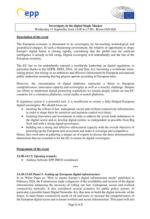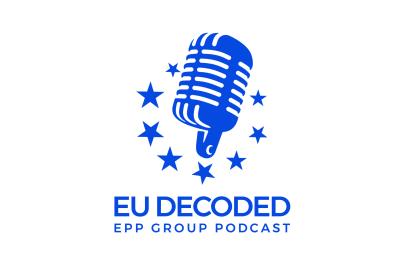EPP Group IMCO Hearing on Sovereignty in the Digital Single Market
Other related content
Read more
Keep it simple! A path to greater efficiency
11.03.2025
Read more
Turning the EU into an economic powerhouse
04.03.2025
Read more
Read more
Less bureaucracy makes Europe stronger
25.02.2025
Read more
Read more
6 / 54








